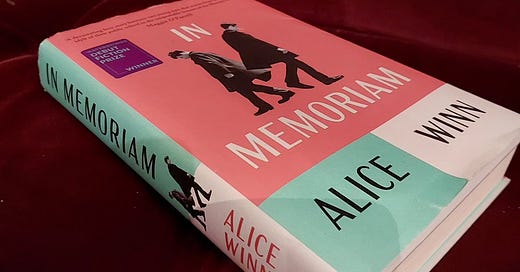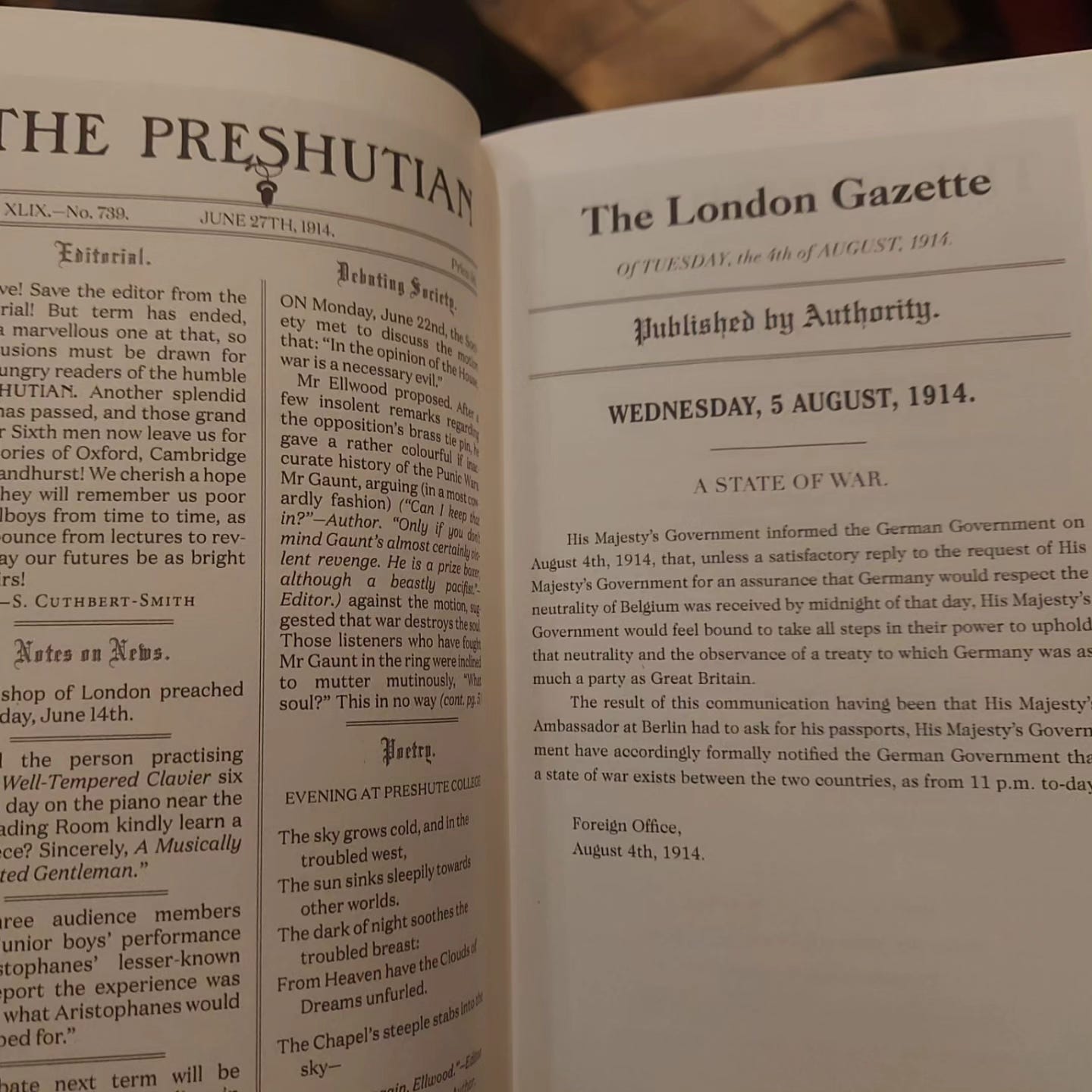Review: 'In Memoriam' by Alice Winn
One of the only war stories that I would qualify as an emergency comfort read. That's how good it is.
This is one of my favourite books of last year and of all time. With Impossible Creatures and In Memoriam among Waterstones’ prize winners, I can only agree wholeheartedly with the judges’ taste.
“I wonder what my ‘In Memoriam’ would say,” he mused.
“‘Vain boy dies in freak umbrella mishap. Investigations pending.’”
My original notes for In Memoriam are as follows:
“No words. So romantic. More of a romance than a war story.”
Which is incredibly helpful for writing a review, but does sum up my feelings towards this novel. It’s the kind of story that despite its incredibly dark themes, has such a wonderfully charming style that I could reread it at any time.
In Memoriam follows two young men at a public school who both, for very different reasons, end up enlisting for the First World War, and who keep their feelings for the other unspoken. There is glamorous, glib, poetic Ellwood, who channels the spirit of Wilde with his wit and confidence. Then there is stoic, serious Gaunt, who disagrees profoundly with the war, but is forced into it by his family’s shame for their German heritage.
The novel tracks both their lives at Preshute, their boarding school, as well as on the front. It’s an interesting contrast between the Blyton-esque school days, with “Cricket and hunting and ices on the lawn on summer afternoons” and the brutality and ineptitude at the front, largely due to the elitist hierarchy of the army.
It all combines to make a beautiful, absorbing read. Both Ellwood and Gaunt are compelling characters with chemistry and banter that leaps off the page. Their mutual secret pining makes for a page-turning romance. The war sections are also done well; devastating losses combine with distinctive, well-drawn characters who aren’t all from Gaunt and Ellwood’s privileged echelons.
Alice Winn’s writing style really suited me: I found the dialogue, in particular, endearing and often funny. The novel is also interspersed with clippings from ‘The Preshutian’, the school newspaper, with the ‘In Memoriams’ that give the novel its name. Apparently Alice Winn was inspired by discovering her own school’s version of the newsletters, and it creates an incredibly moving effect, driving home the extent of the loss and waste of war.
With its combination of heart-wrenching themes of love and war combined with a lyrical yet readable style, I would highly recommend this for any fans of The Song of Achilles.





